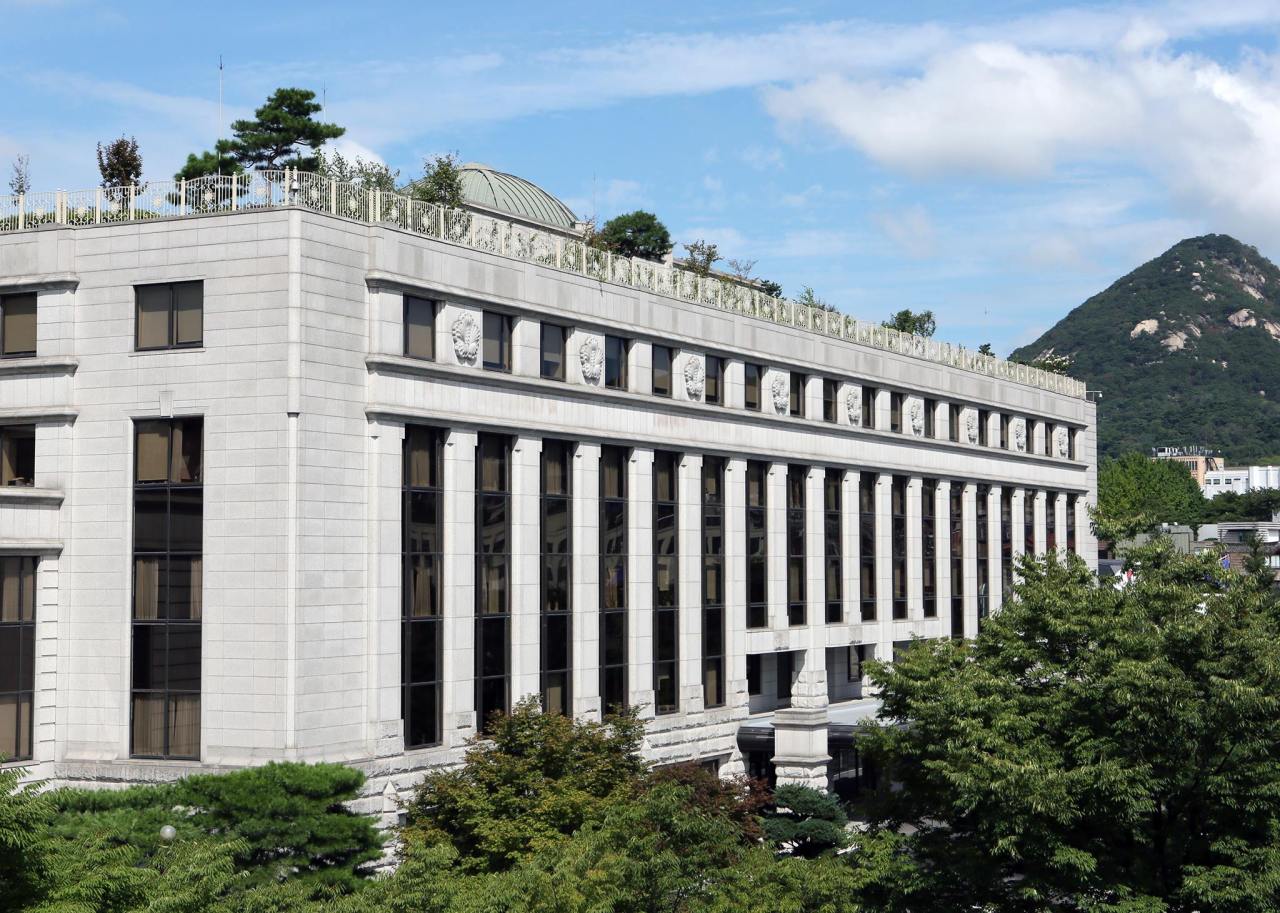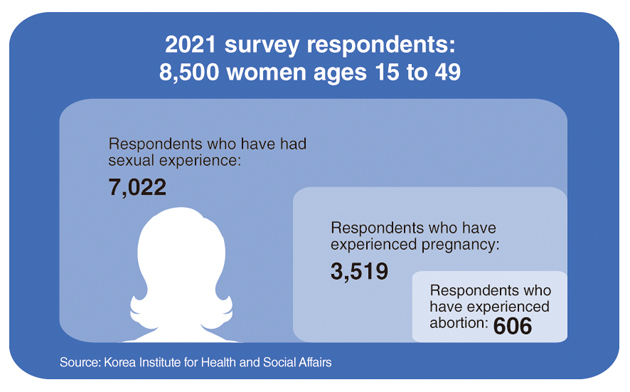Decriminalizing abortion did not reverse declining trend in Korea
By Kim ArinPublished : June 30, 2022 - 15:37

There was no significant change in the number of abortions in the first year since the procedure was decriminalized in South Korea, government researchers said Thursday.
According to the Korea Institute for Health and Social Affairs, the overall declining trend in abortions appeared to continue through the recent years.
Ending a pregnancy was no longer deemed a crime in Korea as of Jan. 1 last year, after the Constitutional Court ruled in April 2019 that the ban on abortion was unconstitutional.
Surveys remain the main source of information about how many abortions are performed in Korea because of the procedure’s unclear legal status and a lack of information on which clinics offer it. The National Assembly is yet to meet the Constitutional Court’s deadline to amend laws to reflect its 2019 ruling.
KIHASA conducted an online survey of 8,500 women aged 15 to 49 years old from Nov. 19 to Dec. 6, 2021, and found 7.1 percent saying they had terminated a pregnancy at some point.
Among 3,519 women who have been pregnant at least once in their lives, 17.2 percent said they had had an abortion at some point.
The average age at which women reported having an abortion was 28.5 years old. Slightly over half or 50.8 percent said they were unmarried at the time of the procedure, with 39.9 percent saying they were married.
Just 7.7 percent used drugs, while 92.2 percent said they underwent surgery. Access to abortion pills is additionally difficult because Korea has no drugs approved for the purpose.
More than a third of women who had a medical, rather than surgical, abortion said they chose medication because it was cheaper. On average medication costs less than 200,000 won ($154) which compares with surgery that can cost up to around 1 million won.
The survey showed the two most common reasons women sought abortion was disruption to education or employment following pregnancy, with 35.5 percent saying so, followed closely by financial insecurity at 34 percent. Other common reasons included family planning, strained or abusive relationships with their partners, and health issues.
KIHASA concluded that there was insufficient long-term data to be able to determine how legalization might influence the overall trend in the incidence of abortion.

The estimated annual number of abortions has declined drastically in Korea over 10 years from 241,411 in 2008 to 23,175 in 2018, before climbing slightly to 26,985 in 2019 and 32,063 in 2020.
“At this point it’s hard to make an association between the change in abortion’s legal status in Korea and in the rates of incidence,” Byoun Soo-jung, a population policy researcher at KIHASA, told reporters in a closed-door briefing. She said the slim increase seen from 2019 to 2020 was not statistically significant.
Ministry of Health and Welfare’s director of childbirth policy, Choi Young-jun, said, “Until the end of 2020 abortion was punishable by law. The data we have now likely does not reflect the changing legal landscape.”
By Kim Arin (arin@heraldcorp.com)
“At this point it’s hard to make an association between the change in abortion’s legal status in Korea and in the rates of incidence,” Byoun Soo-jung, a population policy researcher at KIHASA, told reporters in a closed-door briefing. She said the slim increase seen from 2019 to 2020 was not statistically significant.
Ministry of Health and Welfare’s director of childbirth policy, Choi Young-jun, said, “Until the end of 2020 abortion was punishable by law. The data we have now likely does not reflect the changing legal landscape.”
By Kim Arin (arin@heraldcorp.com)







![[Graphic News] More Koreans say they plan long-distance trips this year](http://res.heraldm.com/phpwas/restmb_idxmake.php?idx=644&simg=/content/image/2024/04/17/20240417050828_0.gif&u=)
![[KH Explains] Hyundai's full hybrid edge to pay off amid slow transition to pure EVs](http://res.heraldm.com/phpwas/restmb_idxmake.php?idx=644&simg=/content/image/2024/04/18/20240418050645_0.jpg&u=20240419100350)






![[From the Scene] Monks, Buddhists hail return of remains of Buddhas](http://res.heraldm.com/phpwas/restmb_idxmake.php?idx=652&simg=/content/image/2024/04/19/20240419050617_0.jpg&u=20240419175937)

![[KH Explains] Hyundai's full hybrid edge to pay off amid slow transition to pure EVs](http://res.heraldm.com/phpwas/restmb_idxmake.php?idx=652&simg=/content/image/2024/04/18/20240418050645_0.jpg&u=20240419100350)

![[Today’s K-pop] Illit drops debut single remix](http://res.heraldm.com/phpwas/restmb_idxmake.php?idx=642&simg=/content/image/2024/04/19/20240419050612_0.jpg&u=)